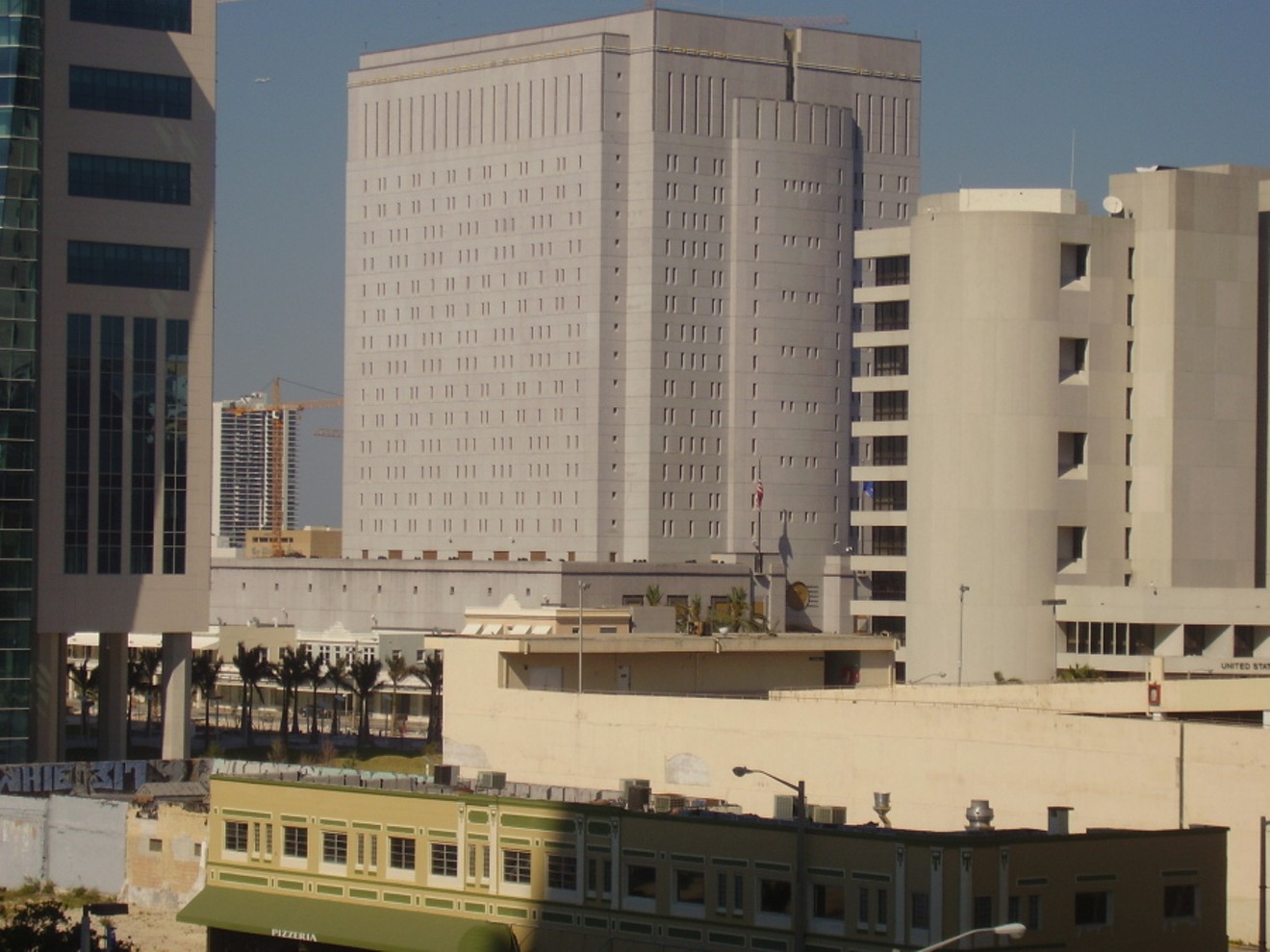Now that idea is moving forward. At the November 29 meeting of the Chairman's Policy Council, Bovo and four other commissioners — Audrey Edmonson, Rebeca Sosa, Jean Monestime, and Dennis Moss — voted unanimously to have Mayor Carlos Gimenez's staff bring back a recommendation about whether or not to bring in a private investor.
"I think this is something that we need to tackle, and we need to tackle as quickly as we can," Bovo said during the meeting. There was no further discussion.
In October, Bovo told New Times his goal is to get rid of the county's outdated, moldy jail facilities, which he described as being in "deplorable conditions." The commissioner said attaining P3 funding, in which government and the private sector work together, is one way to build a new jail fast, since the county alone doesn't have enough money for all the infrastructure projects on its list.
Although Bovo said he is not interested in privatizing jail operations, commissioners in October listened to a presentation from an investment banker who touted the idea. Jeff Mathews, Barclays vice president of infrastructure and project finance — whom Bovo invited to the meeting — told commissioners a "concession model," where the county would partner with a vendor to run the jail, is the "most agreeable" option.
"You're transferring 35 years of cost and operating risk to the private sector, so it’s their problem, not yours," Mathews said.
Mathews added that "90 percent" of P3 deals now involve a concession model, but made clear the county would retain oversight and could set up contractual performance expectations with the vendor. There was no discussion about what would happen to county correctional employees.
Reached by New Times, Miami-Dade Police Benevolent Association president Steadman Stahl said Bovo had assured him any P3 project would not involve privatizing jail operations.
"You can't privatize correctional officer jobs; it doesn't work. The state tried it, and it looks like it's failing pretty significantly," he said. "We would be very much against that."
However, Stahl said he supports rebuilding the jails through any means, including P3: "The buildings themselves?
Critics of P3, though, argue that the deals give private entities leverage over the government. Donald Cohen, executive director of the privatization watchdog group In the Public Interest, told New Times in October that even if the county continued to operate the jail, private ownership of the building could lead to more people being arrested.
"We have a particular concern around the ownership of facilities by private entities," he said. "They have a direct, understandable interest to have those beds filled."
The proposal now moves to Gimenez, who has spoken favorably about P3 in recent years. At a privatization conference in 2015, he argued that government operations don't necessarily have to be run by government employees.
“It used to be Miami-Dade County wanted to operate everything,” Gimenez said, according to the Miami Herald. “I don’t want to operate anything.”












